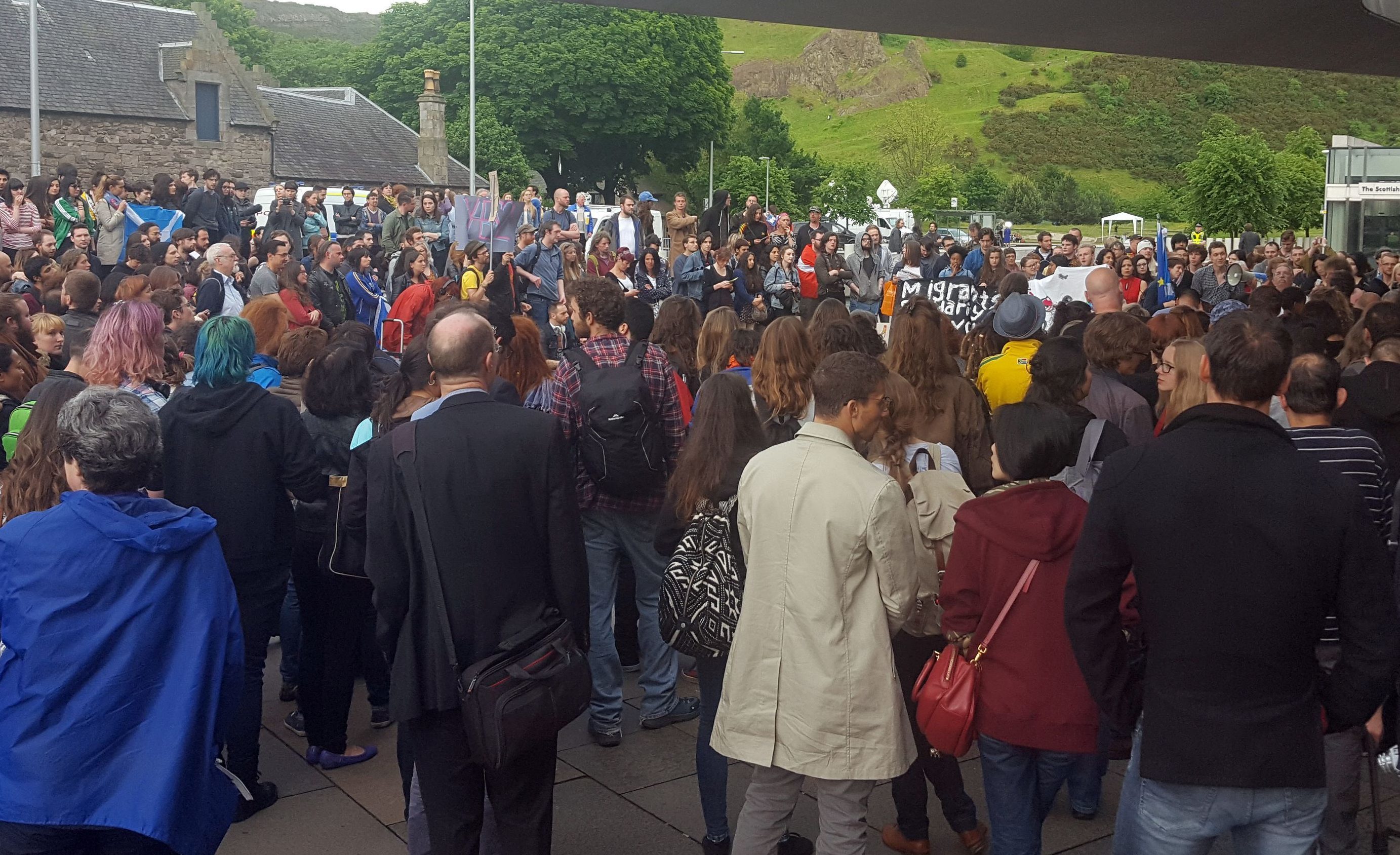A backlash against Brexit has seen a massive surge in support for Scottish independence, according to a poll.
A survey for the Sunday Post found that 59% of Scots want the country to break away from the UK, compared with a third (32%) who supported the Union. The rest did not know.
If the undecided respondents are excluded that puts support for cessation at 65%, five points above the mark that Nationalist strategists regard as the magic number for being confident of victory in another poll.
Derek Mackay, the Finance Secretary, welcomed the poll. He said: “At a time when the government and parties across the UK are in chaos, this poll shows people back Nicola Sturgeon’s strong and stable leadership and support her decision to ensure a second independence referendum is firmly on the table and to explore all options to protect Scotland’s relationship with Europe.”
ScotPulse’s online survey interviewed 1,600 people across Scotland following Friday’s vote to leave the EU.
A Panelbase survey for the Sunday Times in Scotland found 52% of those likely to vote would back independence, with 48% in favour of staying part of the UK.
Nicola Sturgeon has said a second independence referendum is “highly likely” to secure Scotland’s EU status. But she faces strong criticism for seeking to exploit Brexit for another referendum that will create more division and uncertainty.
Alistair Cameron, from campaign group Scotland in Union, said: “The prospect of another independence referendum will not be welcomed by most Scots who expressed their will less than two years ago.”
